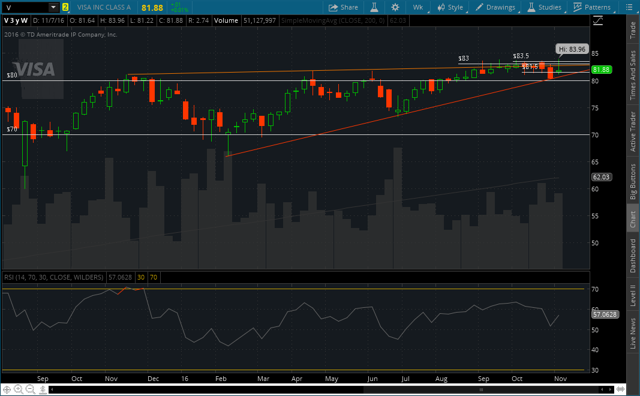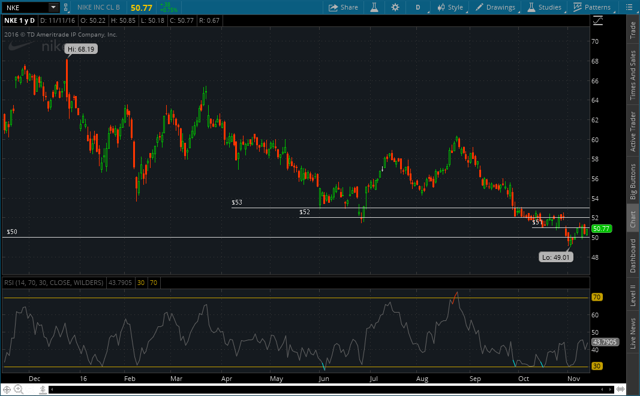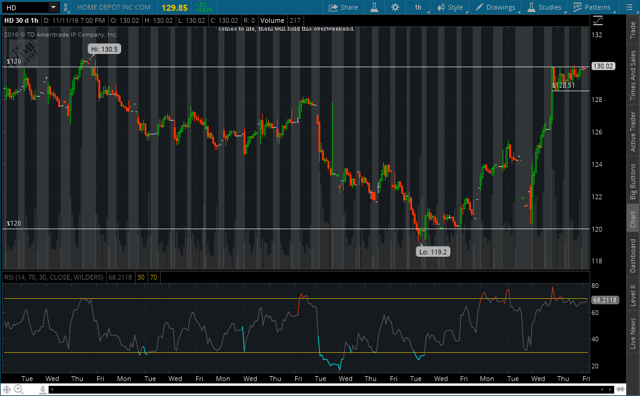Why is trading considered to be the hardest jobs one can have to make a living?
There is a saying that majority of traders fail at the attempt of making a living off of trading. But this is true for a real business too. There is at least hundreds of failure stories for each successful individual in business. In case of trading, that number might be in the thousands not hundreds.
Here are my thoughts that might give some clues as to why that is the case.
Let's think up a fictional person who would serve our purpose of explaining my point of view. I will call him Jeb. So, let's think that Jeb is a hard working fellow who has been at his regular 9-5 job for the last 10 years. For a long time he has been thinking about quitting his job to start his own business to be his own boss. But he has a dilemma, he doesn't know what business are might suit him the best. He is not after big money after all, as his main criteria is to make a decent living. He has been working at a construction business, but he had no heart in it. So he wanted to change his are of work completely.
Jeb was an avid fan of burgers, so he had an idea to start his burger joint so he could serve his recipe for a crusty, fresh burgers to his customers. But, here is another problem. He was not fan of physical labor.
One day, he received an invitation for a reunion. So he had reserved that day to visit his former classmates, where he met Mark. Mark was a trader, and he worked his own capital to make a living. Mark was so eager about his job that all he talked was about markets and his speculations in it. Jeb was fascinated by Marks stories that he decided to devote time to study markets.
At first, it seemed so easy to him. "Just buy at a lower price and sell it when it becomes higher,. This must be so easy that I will become a millionaire in no time" - thought to himself Jeb. He even decided to shortcut his studies, and just start trading. He deposited $50 thousand to a brokerage account. $50 thousand was 100% of his saving or close to it. To make his first trade didn't take much time. On the first day, he went ahead a bought Apple Inc. shares for 102.45 and started furiously following each tick of the stock. Apple was his favorite company, as he had been using Apple products for ages. It must be a wonderful company. That was his ides behind his trade. After he made his purchase, Apple share continued their rise, and it closed that day at 102.66. The next day, Apple shares opened lower because of the overall market fall. Jeb decided to leave his position and went for a business trip. He had been checking the quotes on the road, and it made him happy but sometimes, when prices went lower he became angry and confused. Jeb was not an emotional person, but for some reason he started feeling depressed and angry at no reason, other than being that Apple share were going lower.
After 2 weeks, shares of Apple slided lower to 93.44, at that point he decided to sell his shares in Apple for a loss. After the sell, he felt that a huge load was lifted from his shoulders. He has visited gym for a number of days now, as he lost motivation. He lost sleep and had some terrible headaches. This was all new to him. He couldn't believe that his newfound hobby/fascination might have brought so much pain to him in such a short period of time.
This continued for a number of weeks, before he calmed down and decided to trade more to make back the lost capital. But as was with Apple shares, he lost considerable amount of his capital after a number of unsuccessful speculative trades.
In the end, after 5 months of lost capital and time, he came to realize that this trading thing is not easy after all. But all was lost o Jeb as he decided not to trade any more. Later, he went ahead with his original idea of burger joint which made him nice money and he was happy about it.
This story illustrates interesting point. And that is, that trading might seem like a structured and straightforward business process, but in reality it consists of more psychological elements rather than physical processes. Mike Tyson is famous for his one liner: "Everyone has a plan until they get punched in the face", which in essence describes the business of trading. We all know and can put in writing 99% of our action plan before hand, but that 1% part makes it almost impossible to become a consistent winner in this game of trading. And that, my friend why there are more losers than winners in this business.
We can all write down, what we are going to buy, at what price, and where we might exit the trade and what the appropriate size should be for our trades. But when it when it comes the time to take action and after taking action, things change and stocks might not act like we predict.
Here is a real life example from the trade that I made on Friday (December 9, 2016).
First, I will post the chart here and later will provide my analysis.
On the chart above we can see, that 112.43 was a key level of resistance that AAPL was trying to break above for some time. It had been accumulated for a number of weeks before it decided to do that. On friday, before open, I noticed that AAPL was acting in a way that it wants to go higher. But we can't be 100% sure about anything, so I had waited for the open and it started climbing higher, and I placed stop buy order at 112.50 level with a hard stop at the low of the day at 112.31. Fortunately stock has acted in my favor and my stop loss wasn't triggered. I am sure of one thing. and that is one has to always think about losses first, as gains will take care of themselves. I am keeping 100% of my position in this name as it has a potential to get back to 120 level, as we can see from the weekly chart.
The above example is a clear representation that trades don't happen every day. Sometimes, I wait for weeks before trades happen. And when they do, I have to be ready to take bigger risk, than normal. Swing trades, generally has a potential to become bigger winners than intraday scalp type trades.
This is just one essay in regards to the toughness of this business. It require more stamina than typical sports contest requires. The reason being that trading has many more variables that can affect performance than sports. So one has to take proper measures of risk before plunging into this wonderful business.
Next time, I hope to elaborate on the positive sides of trading.
There is a saying that majority of traders fail at the attempt of making a living off of trading. But this is true for a real business too. There is at least hundreds of failure stories for each successful individual in business. In case of trading, that number might be in the thousands not hundreds.
Here are my thoughts that might give some clues as to why that is the case.
Let's think up a fictional person who would serve our purpose of explaining my point of view. I will call him Jeb. So, let's think that Jeb is a hard working fellow who has been at his regular 9-5 job for the last 10 years. For a long time he has been thinking about quitting his job to start his own business to be his own boss. But he has a dilemma, he doesn't know what business are might suit him the best. He is not after big money after all, as his main criteria is to make a decent living. He has been working at a construction business, but he had no heart in it. So he wanted to change his are of work completely.
Jeb was an avid fan of burgers, so he had an idea to start his burger joint so he could serve his recipe for a crusty, fresh burgers to his customers. But, here is another problem. He was not fan of physical labor.
One day, he received an invitation for a reunion. So he had reserved that day to visit his former classmates, where he met Mark. Mark was a trader, and he worked his own capital to make a living. Mark was so eager about his job that all he talked was about markets and his speculations in it. Jeb was fascinated by Marks stories that he decided to devote time to study markets.
At first, it seemed so easy to him. "Just buy at a lower price and sell it when it becomes higher,. This must be so easy that I will become a millionaire in no time" - thought to himself Jeb. He even decided to shortcut his studies, and just start trading. He deposited $50 thousand to a brokerage account. $50 thousand was 100% of his saving or close to it. To make his first trade didn't take much time. On the first day, he went ahead a bought Apple Inc. shares for 102.45 and started furiously following each tick of the stock. Apple was his favorite company, as he had been using Apple products for ages. It must be a wonderful company. That was his ides behind his trade. After he made his purchase, Apple share continued their rise, and it closed that day at 102.66. The next day, Apple shares opened lower because of the overall market fall. Jeb decided to leave his position and went for a business trip. He had been checking the quotes on the road, and it made him happy but sometimes, when prices went lower he became angry and confused. Jeb was not an emotional person, but for some reason he started feeling depressed and angry at no reason, other than being that Apple share were going lower.
After 2 weeks, shares of Apple slided lower to 93.44, at that point he decided to sell his shares in Apple for a loss. After the sell, he felt that a huge load was lifted from his shoulders. He has visited gym for a number of days now, as he lost motivation. He lost sleep and had some terrible headaches. This was all new to him. He couldn't believe that his newfound hobby/fascination might have brought so much pain to him in such a short period of time.
This continued for a number of weeks, before he calmed down and decided to trade more to make back the lost capital. But as was with Apple shares, he lost considerable amount of his capital after a number of unsuccessful speculative trades.
In the end, after 5 months of lost capital and time, he came to realize that this trading thing is not easy after all. But all was lost o Jeb as he decided not to trade any more. Later, he went ahead with his original idea of burger joint which made him nice money and he was happy about it.
This story illustrates interesting point. And that is, that trading might seem like a structured and straightforward business process, but in reality it consists of more psychological elements rather than physical processes. Mike Tyson is famous for his one liner: "Everyone has a plan until they get punched in the face", which in essence describes the business of trading. We all know and can put in writing 99% of our action plan before hand, but that 1% part makes it almost impossible to become a consistent winner in this game of trading. And that, my friend why there are more losers than winners in this business.
We can all write down, what we are going to buy, at what price, and where we might exit the trade and what the appropriate size should be for our trades. But when it when it comes the time to take action and after taking action, things change and stocks might not act like we predict.
Here is a real life example from the trade that I made on Friday (December 9, 2016).
First, I will post the chart here and later will provide my analysis.
On the chart above we can see, that 112.43 was a key level of resistance that AAPL was trying to break above for some time. It had been accumulated for a number of weeks before it decided to do that. On friday, before open, I noticed that AAPL was acting in a way that it wants to go higher. But we can't be 100% sure about anything, so I had waited for the open and it started climbing higher, and I placed stop buy order at 112.50 level with a hard stop at the low of the day at 112.31. Fortunately stock has acted in my favor and my stop loss wasn't triggered. I am sure of one thing. and that is one has to always think about losses first, as gains will take care of themselves. I am keeping 100% of my position in this name as it has a potential to get back to 120 level, as we can see from the weekly chart.
The above example is a clear representation that trades don't happen every day. Sometimes, I wait for weeks before trades happen. And when they do, I have to be ready to take bigger risk, than normal. Swing trades, generally has a potential to become bigger winners than intraday scalp type trades.
This is just one essay in regards to the toughness of this business. It require more stamina than typical sports contest requires. The reason being that trading has many more variables that can affect performance than sports. So one has to take proper measures of risk before plunging into this wonderful business.
Next time, I hope to elaborate on the positive sides of trading.







